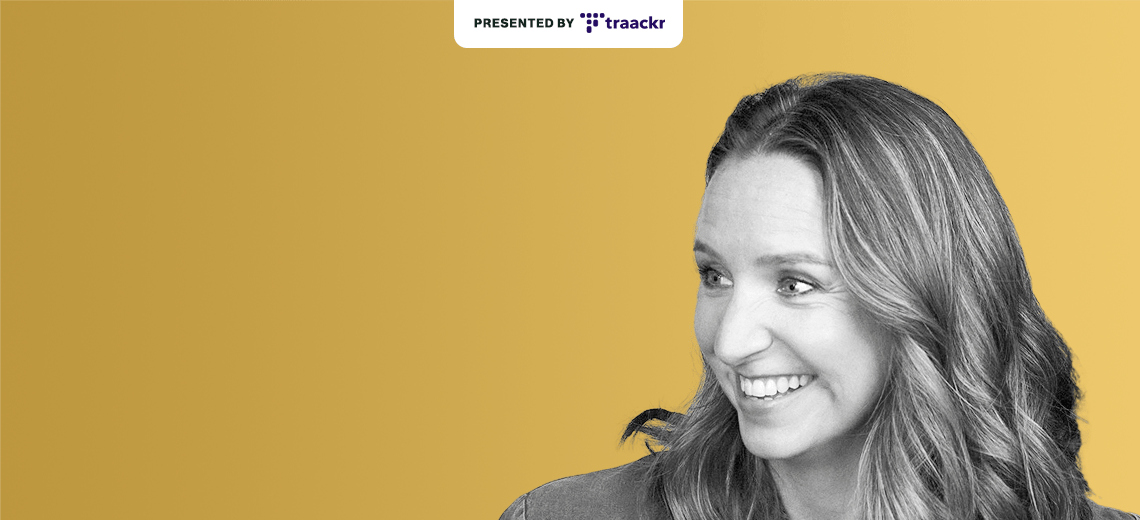This is an episode of the Glossy Beauty Podcast, which features candid conversations about how today’s trends are shaping the future of the beauty and wellness industries. More from the series →
Subscribe: Apple Podcasts | Stitcher | Google | Spotify
When U.K.-based brand Pai Skincare first launched 14 years ago as an organic beauty brand, the clean category was barely in its infancy.
Since then, Sarah Brown, founder and CEO of Pai, has seen the rise and transformation of the clean category. She credits the clean beauty concept for “exploding” the natural category, but said she sees a lot of greenwashing and supports legislation and regulations around clean claims.
Brown came from outside the industry when she launched the brand, after trying to soothe her skin condition known as chronic urticaria, she said on the latest episode of the Glossy Beauty Podcast. Pai has since become known for its hero Rosehip Oil, as well as products including its Rosehip Fruit Extract Cleansing Oil and Chamomile & Rosehip Soothing Moisturizer. Pai sells through U.S. retailers like Credo, Free People, Bloomingdales and Skinstore.
In 2020, Pai underwent a rebrand to focus on two main areas: packaging design and third-party certification. The packaging was updated to be more sustainable and better communicate Pai’s brand positioning, and to incorporate third-party certification to provide credibility.
“We wanted to make the brand look more contemporary and relevant, and [ensure that it also] embodied and communicated our values,” said Brown. “It took about two years. It was really about [asking], ‘How do we sit within this clean category and this big movement?'”
In April 2021, the brand raised a Series B investment round of $9 million, which it used to increase its manufacturing output and distribution. The brand maintains a vertically integrated supply chain with a 12,000-square-foot office in West London, which houses a corporate office, a lab and a manufacturing facility.
Ad position: web_incontent_pos1
Below are excerpts from the conversation with Brown, which have been lightly edited and condensed for clarity.
On the greenwashing problem
“I did not come from the beauty industry at all; I came from the perspective of a very frustrated consumer. I have a skin condition called chronic urticaria. I was somebody who wanted and needed to understand what was in the bottle… It was about substantiating claims that I care very passionately about. Back then, greenwashing was a thing, in terms of fake organic claims. [The beauty industry] is unfortunately not regulated in the same way that food is in organic labeling. Clean is not a term I like. I find myself in this category because of the nature of the brand. But I don’t approve of the term for the simple reason that it’s just so open to interpretation and also abuse. The only way to have a meaningful impact is to establish [clean] standards. One way is to get retailers to [define clean beauty], but until they all have the same standards and impose those standards … legislation is where it’s going to be best controlled.”
Building a vertically integrated business
“The vertical integration piece is unusual. It goes back to wanting complete control over the ingredients we’re sourcing. We do believe it delivers a unique quality, but [also] Covid brought home for us how helpful it is to have some control over your supply chain. We don’t have complete control because, obviously, we’re dependent on raw materials and packaging and all of those things. But being able to control at least the production process and make what we need to make was so helpful. We came out [of 2020] showing double-digit growth. But then Brexit hit [in 2021]. And it’s been arguably so much harder for businesses in the U.K. In a matter of days, [the industry] had its distribution costs tripled. But we opened three distribution centers in very quick succession [in 2021], to quickly move all of that complexity out of the business.”
Ad position: web_incontent_pos2
Developing micro-batch program Pai Labs
“Pai Labs was quite a vague notion we’d had for a long time. But it wasn’t a fully formulated idea. We just had the idea. We have three amazing chemists and about 45 years of formulating experience between them, and we have our lab and our factory. We felt that we weren’t leveraging that properly. Historically, product development was us making our organic interpretation of a product, but that’s sort of where the level of innovation stopped. But it should be us leading from the front and conceiving a lot of product ideas and getting new ingredients to market first. Then Covid happened, and you couldn’t get any sanitizer, so we started making one, and we did it in two weeks. We donated 24,000 units to food banks, shelters, [retirement] homes and schools. Our new product, Concentrates, is our newest launch [with Pai Labs]. They’re effectively boosters, and they are our big push into active [ingredients] — not an obvious space for an organic and sensitive skin-care brand.”




